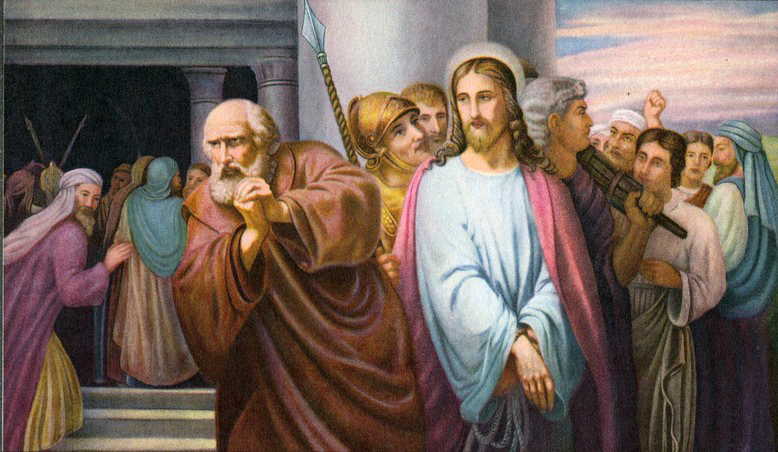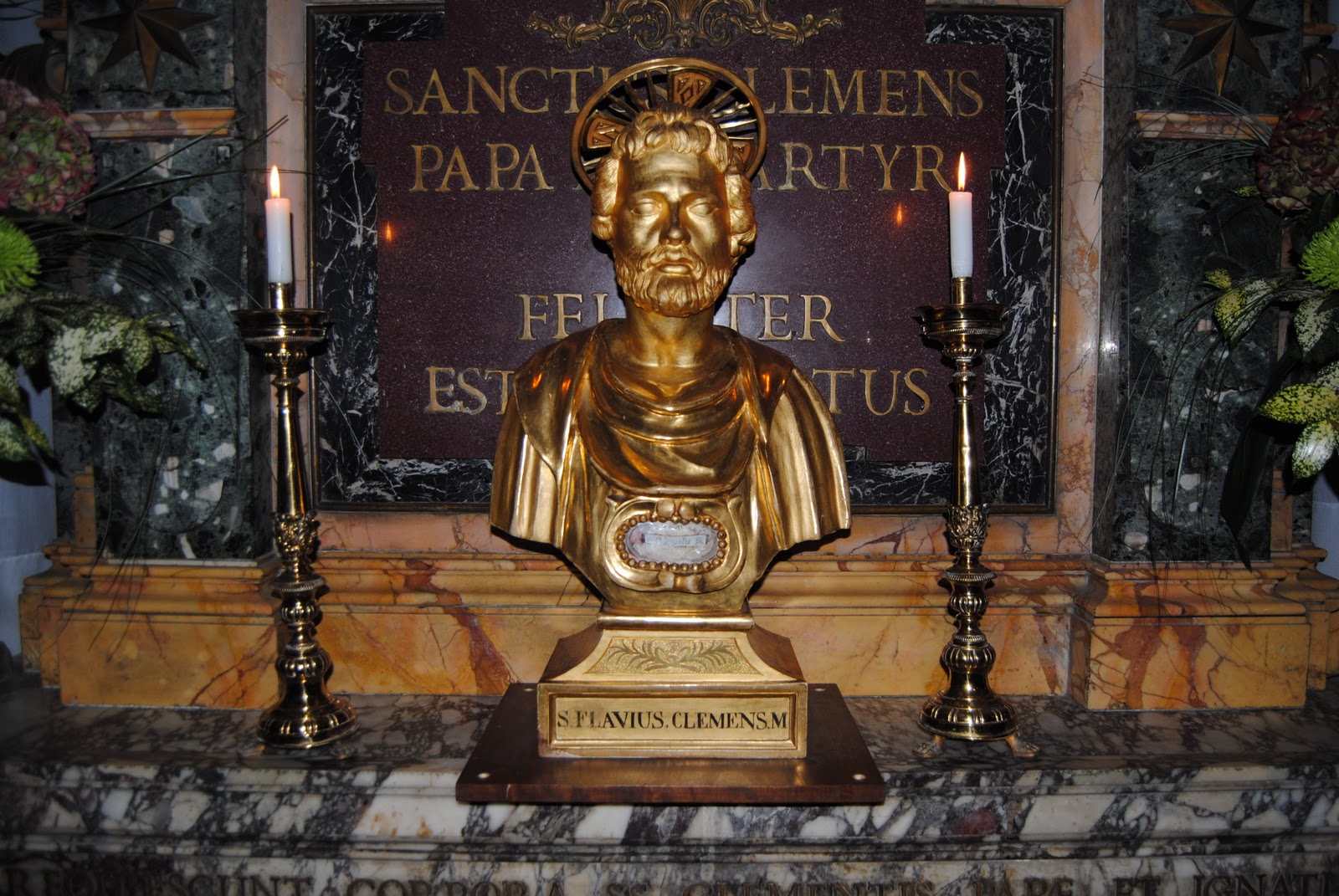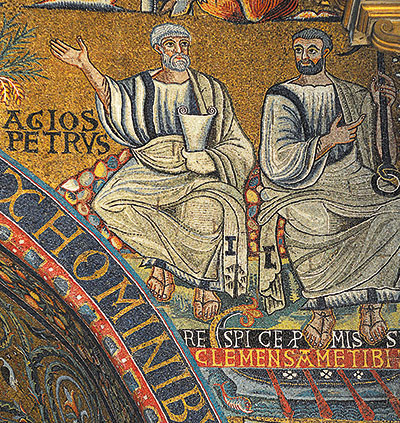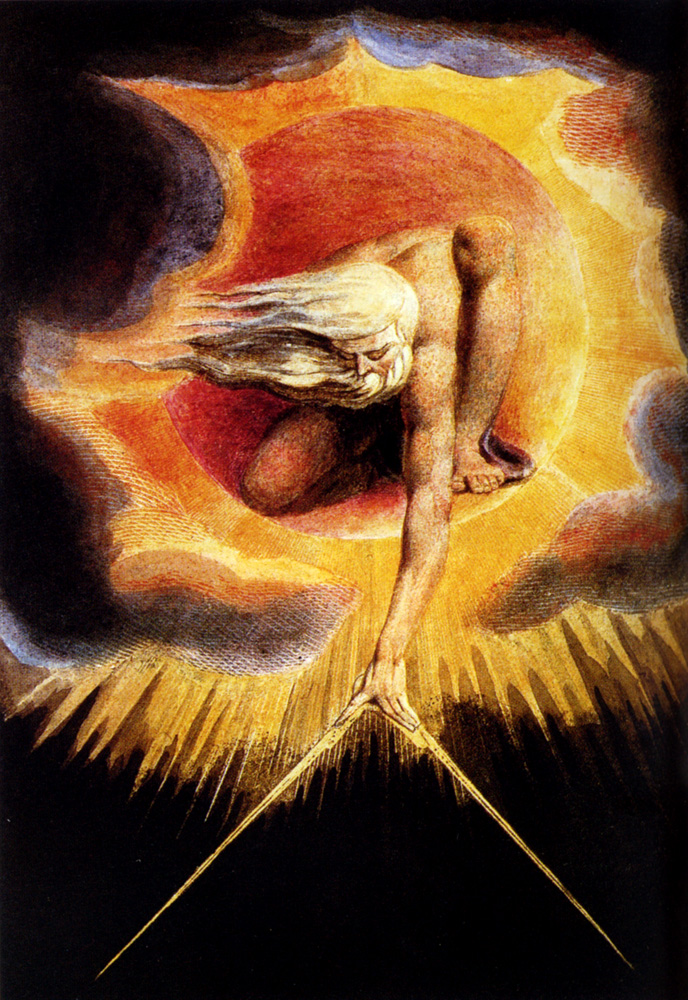Ten years on from the Arab “spring”, Sisi has made life in Egypt livable
Amr Darrag, an Islamist who was a founding member of the so-called “Freedom and Justice” Party (which pretty much is the Muslim Brotherhood with a better public relations name) in Egypt wrote an interesting article on The Guardian. It is very important to actually identify the author’s background right at hand. Mr. Darrag tends to sugarcoat his article with this notion of a nostalgic longing for a democratic Egypt that was snatched away by Sisi and the army. Interestingly enough, he skips over the fact that during the Muslim Brotherhood’s takeover, with Mr. Darrag’s coordinated efforts, Egypt was well on its way to being slowly turned into an Islamist state that would pave the way for a caliphate.
(more…)Random Thought: Creation as a Result of one exhalation of Word and Spirit
God the Father in His eternal being speaks within and inhales His own Word and Spirit. In creation, it is one eternal speech “outside” and exhalation of His Command and Breathe (more…)
A Worthwhile List of 21 Centuries of “Holy Writings”
In May 2017, I was annoyed with a self-proclaimed “Coptic apostate” who was an atheist for, and I tried my best to be empathetic, ignorant and silly reasons. There are certain things you would expect from a more well educated atheist, and then there was this anonymous person online. He made a claim that became to me an opportunity to put a list of favorite Christian authors over the centuries, and not just Oriental Orthodox, but Chalcedonian Orthodox and Roman Catholics, as well as maybe a few in the 19th and 20th centuries who are neither, but can be considered as respected by Apostolic traditions, like C.S. Lewis and Francis Collins, MD. So I will attach my private message here for posterity’s sake. This Coptic atheist claimed to say we did not holy books written for 1500 years.
My response:
(more…)Random Thought: Human Non-Dichotomous/Non-Tripartite Nature (Co-Judgment, Mercy, and Intercessions)
This is Part 3 of a series of random thoughts on our human nature. Part 1 is here and Part 2 is here.
But is it ever too late?
Why is it that God cannot just save those souls Himself? Why the prayers? Are prayers so mechanical that if we pray a certain number of times that we will achieve some sort of indulgence to adequately purge the dead soul? No! That is not the case here. God wants us to build up ourselves not just for ourselves, but for others, for the sake of love. Praying for others come from a heart of truly loving others and wishing to bring others up into the Spirit with you. (more…)
Commentary on Clement of Rome: Chapter 34

The good servant receives the bread of his labour with confidence; the lazy and slothful cannot look his employer in the face.
This is the most difficult commentary I am writing. Not because the concept is difficult, but because something as profoundly spiritual as this quote needs to be put in practice, and I confess before you that I am unable to put this in practice. My delay in posting for such a long time on my blog is that I needed to prioritize my secular work. (more…)
Who’s Sleeping?
It has been contemplated by many Church leaders and theologians that when they read the passage on Christ sleeping in the same boat His disciples were trying to salvage in the middle of a storm, they see the same boat in the world or the Church going through chaos and tribulations, and we feel our Lord and God, our Creator, is sleeping peacefully in the middle of these troubles.
Lord, why are you sleeping? When will You wake up?
And yet, we may forget, we too sleep when our Lord and Creator is going through suffering Himself. And God stands there, even asking just one hour (Matthew 26:40), let alone unceasing prayer! At the time when God grants us salvation, even on a Cross up on high, the crucified God might look down upon us and ask,
Why are you sleeping? When will you wake up?
It seems to be a matter of perspective. One can concentrate on the troubles of the world, and blame it all on God. God then takes these troubles upon Himself, and we are able to sleep soundly. And when we wake up, the cycle repeats itself. Our minds concentrate too much on the physical and likes to blame God, or even get to the point where we lose faith in His existence. Why should I believe in God when all these evils occur?
And yet, if we truly wake up, not physically, but spiritually, beholding divinity in all its incomprehensible glory, then will the answer be given. It is still an incomplete answer. But it nonetheless makes sense of the world, not by shining on it our own created understanding, but the uncreated Light.
When will we wake up indeed? People suffer and we are still asleep, because our answers without God lead to the futility of the sufferers. No matter what we do WITHOUT GOD, people suffer.
But the mystery is this: there are those who on the outside suffer, but on the inside have incomprehensible joy. Whatever, or Whoever dwells in them is the answer, and the key to “wake up”. And while we find them crucified on His Cross, it is they who heal our suffering, not the other way around.
The contrast therefore is this: Without God, people suffer to their own destruction. With Christ, people suffer to their own salvation! I cannot see anyway else around this.
And then we too, the believers, can also realize that Christ was and IS always awake, even when He was physically asleep in that chaotic boat.
Praise God in His saints, the truly awake!
“Human freedom can be neither broken nor neutralized by divine freedom, but it may well be, so to speak, outwitted”
I like this quote, and I would like to revisit the ideas in this quote some day, not necessarily concerning the subject of apocatastasis, but rather to discuss the the ancient controversy of “semi-Pelagianism”.
 We attempted to understand what part freedom plays in the work of redemption. For this it is not adequate if one focuses on freedom alone. One must investigate as well what grace can do and whether even for it there is an absolute limit. This we have already seen: grace must come to man. By its own power, it can, at best, come up to his door but never force its way inside. And further: it can come to him without his seeking it, without his desiring it. The question is whether it can complete its work without his cooperation. It seemed to us that this question had to be answered negatively. That is a weighty thing to say. For it obviously implies that God’s freedom, which we call omnipotence, meets with a limit in human freedom. Grace is the Spirit of God, who descends to the soul of man…
We attempted to understand what part freedom plays in the work of redemption. For this it is not adequate if one focuses on freedom alone. One must investigate as well what grace can do and whether even for it there is an absolute limit. This we have already seen: grace must come to man. By its own power, it can, at best, come up to his door but never force its way inside. And further: it can come to him without his seeking it, without his desiring it. The question is whether it can complete its work without his cooperation. It seemed to us that this question had to be answered negatively. That is a weighty thing to say. For it obviously implies that God’s freedom, which we call omnipotence, meets with a limit in human freedom. Grace is the Spirit of God, who descends to the soul of man…
View original post 699 more words
Commentary on Clement of Rome: Chapters 30 & 32
Chapter 30:
Seeing, therefore, that we are the portion of the Holy One, let us do all those things which pertain to holiness, avoiding all evil-speaking, all abominable and impure embraces, together with all drunkenness, seeking after change, all abominable lusts, detestable adultery, and execrable pride.
or
Seeing then that we are the portion of one who is holy, let us do all the deeds of sanctification, fleeing from evil speaking, and abominable and impure embraces, drunkenness and youthful lusts, and abominable passion, detestable adultery, and abominable pride.
Here, the main topic is the idea we are “the portion of the Holy One”, or “One who is Holy”. In the last commentary on Chapter 29, we discussed being a “partaker of the election”. Another aspect of being elected by God is that we “inherit” God. We are allotted a share in the inheritance of His Kingdom, “giving thanks to the Father who has qualified us to be partakers of the inheritance of the saints in the light.” (Col. 1:12) To have a share or a portion of something is to partake. We partake of the Holy One, therefore we are made Holy, leading us to be doers of holy (or Godly) deeds.

Relic Bust of St. Clement at his tomb in Basilica of San Clemente, Rome (Source)
Commentary on Clement of Rome: Chapter 29

St. Peter and St. Clement
Let us then draw near to Him with holiness of spirit, lifting up pure and undefiled hands unto Him, loving our gracious and merciful Father, who has made us partakers in the blessings of His elect.
or
Let us then draw near to Him with holiness of spirit, lifting up pure and undefiled hands unto Him, loving our gracious and merciful Father, who has made us to Himself a part of election.
I chose this sentence for the main reason that it said “partakers”. In the ANF, there is a small note on the translation of this passage, so I gave the second possible translation. When I think of “partakers”, I think of the passage from the second epistle of Peter, chapter 1: (more…)
Commentary on Clement of Rome: Chapter 27
He who has commanded us not to lie, shall much more Himself not lie; for nothing is impossible with God, except to lie.
This passage can at first catch anyone by surprise. Imagine saying that it is “impossible for God” to do this or that. St. Clement reveals to us a glimpse of theology that later Greek and Western concepts may not be able to grasp completely. The idea that there are many things God, the infinite, the boundless, the timeless, the eternal, the incomprehensible, the “awe-ful”, the all-encompassing, the omnipotent God cannot do sounds very troubling to our minds.

“The Ancient of Days”, William Blake (1794)